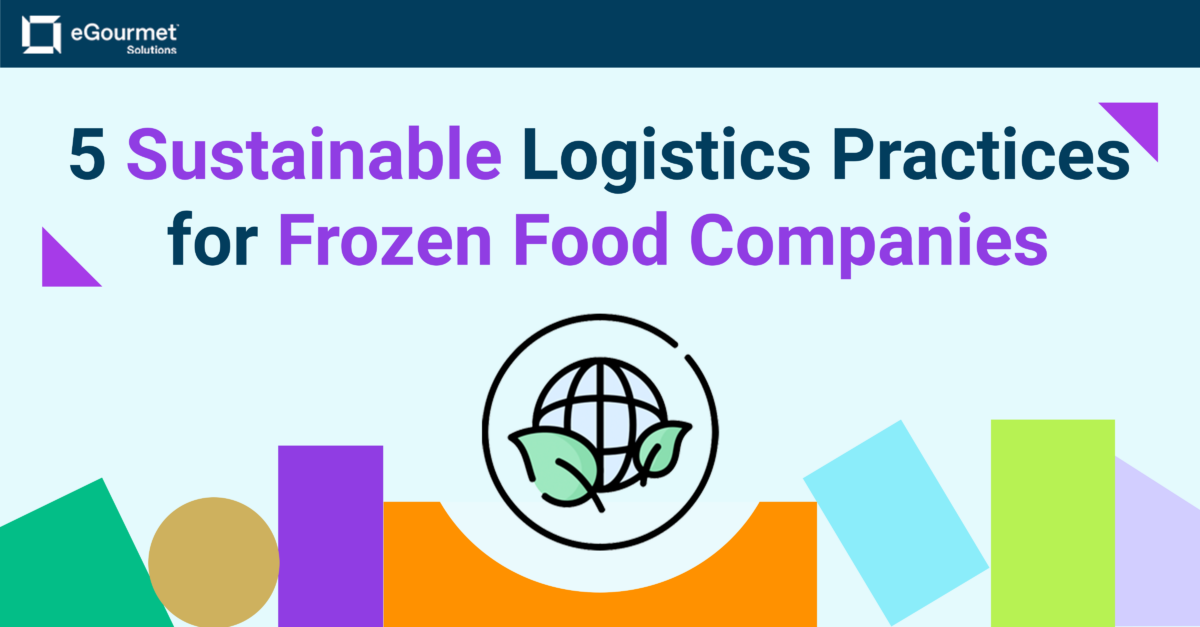
In today’s world, sustainability has become increasingly important as we strive to protect the environment for future generations. Frozen food companies are essential in the food industry and can help the planet by using sustainable practices. This blog will discuss how to become more sustainable and eco-friendly.
1. Eco-Friendly Packaging Solutions:
Packaging is a crucial aspect of the food industry. However, traditional packaging materials like plastic can have harmful effects on the environment. To address this issue, frozen food companies can explore alternative packaging solutions that are more eco-friendly.
For example, companies can use packaging made from recyclable or biodegradable materials, such as cardboard or compostable plastics. By choosing sustainable packaging options, companies can reduce their environmental footprint and minimize waste.
Additionally, companies can focus on reducing the amount of packaging used for their products. They can implement innovative packaging designs that maximize space efficiency and minimize excess material. This not only benefits the environment but also reduces costs associated with packaging materials and handling
eGourmet Solutions uses eco-friendly KTM Green cell liners. These liners are plant based, made from US corn. They offer custom thickness options for cost-effectiveness and sustainability. Find out more here!
2. Energy-Efficient Production Facilities:
The food production process requires significant amounts of energy, from refrigeration to cooking and packaging. Frozen food companies can reduce their environmental impact and save money by investing in energy-efficient production facilities.
Companies can achieve this by upgrading to energy-efficient logistics equipment and technology. This includes installing energy-efficient refrigeration systems, LED lighting, and energy management systems to monitor and control energy usage throughout the facility.
Furthermore, companies can explore renewable energy sources such as solar or wind power to supplement their energy needs. Frozen food companies can use renewable energy to reduce fossil fuel use and lower carbon emissions in their operations. LED lights consume up to 80% less energy than traditional lighting, last 25 times longer, and use 75% less energy (Gitnux).
3. Sustainable Sourcing Practices:
Sustainable sourcing is essential for promoting environmental responsibility within the frozen food industry. Companies can closely work with their suppliers to ensure that they source their products and raw materials responsibly and ethically.
This means obtaining ingredients from suppliers who farm organically and locally. These suppliers treat workers fairly, and they follow animal welfare rules to ensure sustainability and ethical practices. Companies can reduce environmental impact by selecting sustainable suppliers for their products and ensuring that they produce responsibly.
Additionally, companies can explore opportunities to source locally grown or seasonal ingredients whenever possible. This not only supports local farmers and producers but also reduces the environmental impact of transportation. In addition, sustainable procurement programs can improve brand reputation by 30% (Zipdo).
4. Minimizing Food Waste:
Food waste is a significant issue within the food industry, contributing to environmental degradation and economic loss. Experts estimate that 30-40% of the food supply will become food waste. (USDA). Frozen food companies can help reduce food waste by using strategies to minimize waste during production and distribution.
Companies can achieve this by optimizing production processes to minimize waste generation. This includes improving inventory management practices, implementing production scheduling systems to reduce overproduction, and finding innovative ways to utilize byproducts and leftovers.
Companies can help reduce food waste by giving clear instructions, offering smaller portions, and educating consumers on waste reduction. Clear instructions on packaging can help consumers understand how to properly store and use food products. Offering smaller portions can help prevent overbuying and reduce the amount of food that goes to waste. Educating consumers about the importance of waste reduction can help raise awareness and encourage more sustainable consumption habits.
5. Transparency and Accountability:
Transparency and accountability are essential principles for promoting sustainability within the frozen food industry. Companies can demonstrate their commitment to sustainability by being transparent about their practices, policies, and performance metrics.
This involves providing details on how products impact the environment, such as carbon emissions, water use, and waste production. Companies can also publish sustainability reports that outline their sustainability goals, progress, and initiatives, allowing stakeholders to track their performance over time.
Additionally, companies can engage with stakeholders, including consumers, employees, and community members, to solicit feedback and input on sustainability initiatives. Companies can create a transparent and accountable culture by involving stakeholders in decisions. This ensures that sustainability is a top priority in all areas of their work.
In conclusion, adopting sustainable practices is essential for frozen food companies to promote environmental responsibility and contribute to a more sustainable future. Companies can demonstrate their concern for the environment in various ways.
They can use eco-friendly packaging, save energy, source sustainably, reduce food waste, and be transparent. These actions contribute to becoming more environmentally friendly and better the planet. Companies should take action today to ensure a better tomorrow for generations to come.